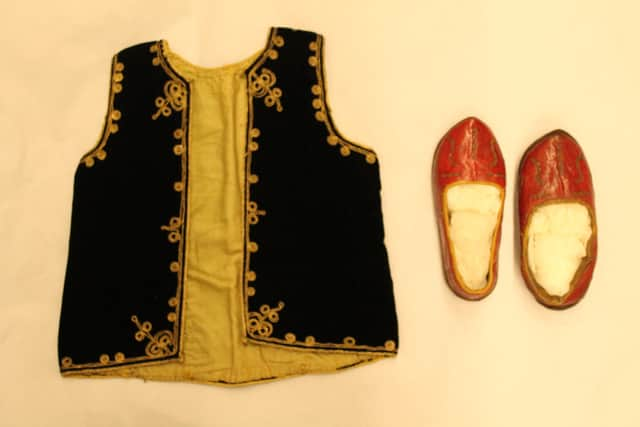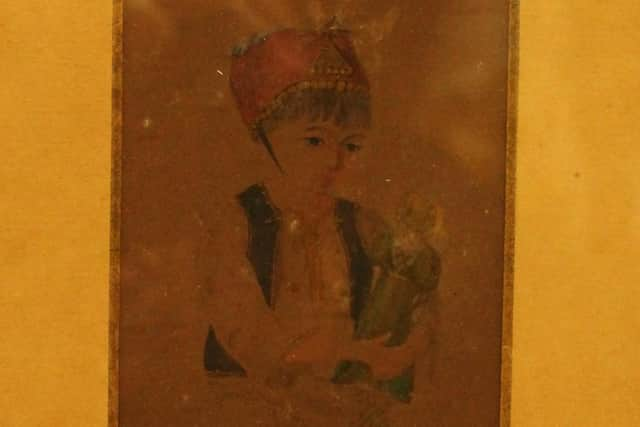John William Burgon: The life of Chichester dean whose writings are standards for faith and doctrine
and live on Freeview channel 276
Well, Burgon was actually Dean of Chichester from 1876 until his death on August 4, 1888. He moved from Smyrna to London with his family at a very early age. His father Thomas Burgon, a London merchant who traded in Turkey and was a collector of ancient art, was married to the daughter of an Austrian consul in Smyrna, Catherine Marguerite de Cramer.
Burgon began his working life in his father’s counting-house but started attending Worcester College, Oxford, in 1841 to study Latin and Greek and eventually took his degree in 1845.


Advertisement
Hide AdAdvertisement
Hide AdDuring his time at the University of Oxford, he was awarded the Newdigate Prize, awarded to students for the best composition in English verse, for his poem Petra about the city in Jordan. Although he had never visited this city, it is an often quoted poem, in particular his final line, ‘match me such marvel save in Eastern clime, a rose-red city half as old as time’.
In 1846, Burgon won an Oriel fellowship, a senior academic position at Oriel College, Oxford. It was during this time he developed and advanced his theological and philosophical study and teachings, becoming a vicar of the University Church of St Mary the Virgin in 1863. He was heavily influenced by his brother-in-law, a conservative Anglican churchman by the name of Henry John Rose (1800-1873) who eventually became Archdeacon of Bedford.
Burgon became known for his study of theological doctrine and his vehement sermons in which he defended scripture and promoted the idea of biblical inerrancy, the belief that the Bible is without error or fault.
With this in mind, it is no great surprise that Dean Burgon held a very traditional view of women’s education.


Advertisement
Hide AdAdvertisement
Hide AdFamously, in 1884, Burgon gave a sermon to the women of New College Oxford, titled ‘To educate young women like young men and with young men – a thing inexpedient and immodest’, in which Burgon inferred of women ‘Inferior to us God made you, and our inferiors to the end of time you will remain’.
On November 1, 1875, Benjamin Disraeli offered Burgon the deanery of Chichester, which he accepted, becoming Dean of Chichester the following year. His life during these years, as well as those spent in Oxford, has been well documented by friend and churchman Edward Meyrick Goulburn (1818-1897).
According to a letter written by Canon Awdry, a friend and supporter of Burgon who joined the Chichester chapter later in 1879, ‘the history of Dean Burgon’s relations with his Chapter from first to last was this. He declared war upon his Residentiary Canons by sending them one of those scoldings with which we were all familiar before he came into residence’.
His relationship with the Chapter eased over the course of his tenure and Canon Awdry remarked ‘it was with no small honour to a man of Dean Burgon’s impulsive and uncompromising temperament that he ended his term of office on terms of friendship and affection with his Bishop and with his greater and lesser Chapters’.
Advertisement
Hide AdAdvertisement
Hide AdBurgon’s health began to deteriorate in the spring of 1888 until his death, a result of, according to the physician’s death certificate, ‘nervous strain resulting from prolonged mental work’ and, as produced by this, ‘exhaustion of the organic nervous system’.
Burgon himself attributed this strain to the completion of his last work, The Lives of Twelve Good Men, which has since been recognised as a piece of significant cultural importance.
His name is now more well-known for its association with the Dean Burgon Society and the Burgon Society. The former is a group that defends the traditional English translation (King James version) of the Bible as being a true and faithful translation of the original texts. The Burgon Society on the other hand promotes the study of academic dress, such as the gowns worn during graduation ceremonies, preserving its history and advising film and television companies. The society is so called because he is the only person to have a particular shape of hood, the Oxford Burgon, named after him.
John William Burgon is recognised as an Anglican Divine, a member of the clergy of the Church of England whose theological writings are standards for faith and doctrine. A commemorative plaque can still be seen in the floor of Chichester Cathedral’s south transept.
Advertisement
Hide AdAdvertisement
Hide AdThe Novium Museum has a collection of Greek or Turkish costume that was worn by Burgon as a child and some of his close family. The collection was originally left to the Chichester Corporation in a tin box, along with a portrait of Dean Burgon wearing some of the garments, painted by his aunt Mary Ann Burgon.
Also in the news: Worthing Archaeological Society: 100 years dedicated to the history of West Sussex, including findings of national importance
For the latest breaking news where you live in Sussex, follow us on Twitter @Sussex_World and like us on Facebook @SussexWorldUK
